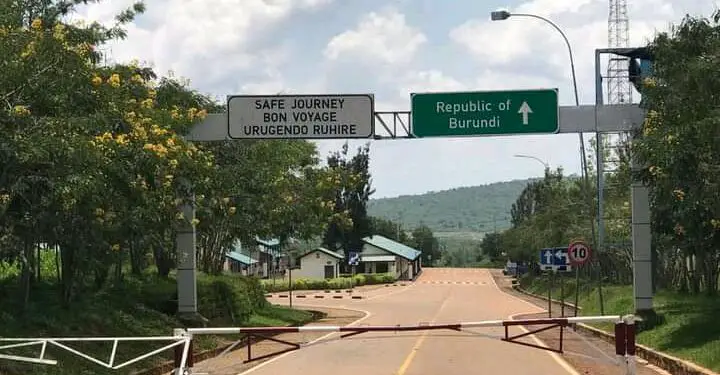Burundi Closes Borders with Rwanda Amid Escalating Diplomatic Tensions
Burundi has officially closed its borders with Rwanda, marking a new chapter in the diplomatic tensions between the two neighboring African nations. Burundi’s Interior Minister, Martin Niteretse, announced the decision, stating, “We have stopped ties with him until he changes.”
The border closure comes in the wake of accusations from Burundi, accusing Rwanda of financially supporting rebel attacks. Burundian President Évariste Ndayishimiye leveled these allegations in December, particularly after a deadly incident that claimed 20 lives near Burundi’s border with the Democratic Republic of Congo (DRC).
Rwandan President Paul Kagame vehemently denies the charges, and his government has expressed regret over the unilateral closure of the border by Burundi. The diplomatic rift deepened as both nations stand firm on their positions.
The rebel group Red Tabara has claimed responsibility for the December attack, admitting to killing nine soldiers and one police officer. Notably, this rebel group operates from the South Kivu province in DR Congo, sharing a border with Burundi.
This is not the first time Burundi has taken such drastic measures against Rwanda. In 2015, the authorities closed the borders due to political tensions, and later, due to the COVID-19 pandemic. The borders remained closed for seven years, reflecting the historical sensitivity of the relationship.
For Rwanda, this development adds to a series of diplomatic challenges, following tensions with the Democratic Republic of Congo in July 2023. At that time, the DR Congo’s army reported that Rwandan forces had crossed the border and attacked its frontier security forces, escalating tensions between the two central African neighbors.
In December, Bintou Keita, UN Special Representative to DR Congo, warned the Security Council about the escalating tensions between Congo and Rwanda, raising the risk of a military confrontation that could potentially involve Burundi.
As the situation unfolds, regional stability is at stake, and international observers closely watch for diplomatic resolutions to diffuse the growing tensions in the Great Lakes region of Africa.
Source: AfricaNews



